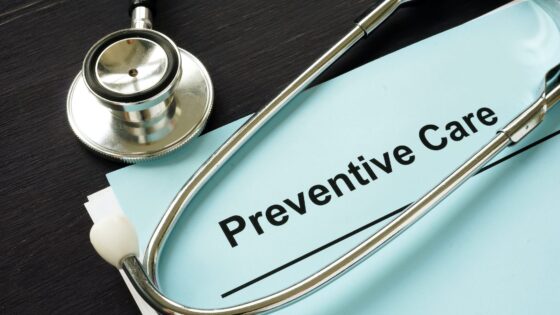
In the fast-paced world we live in, maintaining optimal health is more crucial than ever. Preventive care and routine wellness checks at primary care facilities play an essential role in ensuring long-term health and minimizing the need for urgent care visits. This comprehensive guide explores the vital components of preventive care, the benefits of regular health screenings, and how they contribute to overall well-being.
Understanding Preventive Care
Preventive care involves measures taken to prevent diseases, injuries, or illnesses before they occur. It encompasses a range of services offered by primary care providers, including screenings, vaccinations, and lifestyle counseling. By focusing on prevention, individuals can avoid potential health issues and address existing conditions before they worsen.
Key Components of Preventive Care
-
Regular Health Screenings: These are tests and assessments performed to detect potential health problems early. Common screenings include blood pressure checks, cholesterol levels, diabetes testing, and cancer screenings such as mammograms and colonoscopies.
-
Vaccinations: Immunizations protect individuals from infectious diseases like influenza, pneumonia, and measles. Staying up-to-date with vaccines is a fundamental aspect of preventive care.
-
Lifestyle Counseling: Primary care providers offer guidance on nutrition, physical activity, stress management, and other lifestyle factors that influence health. Counseling helps patients make informed choices to improve their quality of life.
-
Routine Check-Ups: Regular visits to the primary care provider ensure continuous monitoring of health status. These check-ups provide an opportunity to discuss concerns, review medical history, and update treatment plans.
The Importance of Wellness Checks
Wellness checks are comprehensive evaluations of a person’s overall health, typically conducted annually. They are a cornerstone of preventive care, offering several benefits:
Early Detection of Health Issues
Routine wellness checks allow for early detection of potential health problems. By identifying issues at an early stage, treatment can be more effective, reducing the risk of complications and improving outcomes.
Establishing Baseline Health
During wellness checks, primary care providers establish baseline health metrics, such as weight, blood pressure, and blood sugar levels. These benchmarks help monitor changes over time and evaluate the effectiveness of health interventions.
Personalized Health Plans
Based on the information gathered during wellness checks, primary care providers develop personalized health plans tailored to individual needs and risk factors. These plans may include specific lifestyle modifications, medications, or additional screenings.
Building a Strong Patient-Provider Relationship
Regular interactions with a primary care provider foster a strong patient-provider relationship. This relationship is built on trust and communication, essential for discussing sensitive health issues and making informed healthcare decisions.
Prevention of Urgent Care Visits
By maintaining regular wellness checks, individuals can prevent the need for urgent care visits. Early intervention and continuous monitoring reduce the likelihood of acute health crises that require emergency medical attention.
Benefits of Preventive Care at Primary Care Facilities
Primary care facilities serve as the frontline of preventive care, offering numerous advantages:
Comprehensive Care
Primary care providers offer a holistic approach to health, addressing a wide range of medical needs. This comprehensive care ensures that all aspects of a patient’s health are considered, from physical to mental well-being.
Continuity of Care
By having a dedicated primary care provider, patients receive consistent care over time. This continuity helps providers understand patients’ medical histories, preferences, and lifestyle factors, allowing for personalized and effective care.
Cost-Effectiveness
Preventive care is often more cost-effective than treating advanced diseases. Regular screenings and check-ups can prevent costly medical interventions down the line, reducing overall healthcare expenses.
Accessibility
Primary care facilities are generally more accessible than specialized clinics, providing convenient access to essential health services. This accessibility encourages individuals to seek regular care and maintain their health proactively.
Coordination of Care
Primary care providers coordinate care with specialists and other healthcare professionals to ensure comprehensive treatment. This coordination minimizes redundant tests and conflicting treatments, streamlining the healthcare experience.
The Role of Screenings and Vaccinations
Screenings and vaccinations are crucial elements of preventive care, offering protection against a variety of health issues:
Essential Screenings
- Blood Pressure Monitoring: High blood pressure is a leading risk factor for heart disease and stroke. Regular monitoring helps manage and reduce these risks.
- Cholesterol Checks: High cholesterol levels can lead to cardiovascular disease. Screening helps identify individuals at risk and guide dietary or pharmacological interventions.
- Diabetes Testing: Early detection of diabetes or prediabetes allows for lifestyle changes and treatments that can prevent disease progression.
- Cancer Screenings: Regular screenings for breast, cervical, colorectal, and prostate cancer can detect malignancies early, significantly improving treatment success rates.
Vaccination Importance
Vaccinations are a safe and effective way to prevent infectious diseases. Staying up-to-date with recommended vaccines protects individuals and the community by reducing the spread of contagious illnesses.
Lifestyle Counseling: A Pillar of Preventive Care
Lifestyle counseling focuses on empowering patients to make healthier choices. It encompasses:
Nutrition Advice
Primary care providers offer dietary guidance to support overall health. Recommendations typically include consuming a balanced diet rich in fruits, vegetables, whole grains, and lean proteins, while limiting processed foods and sugars.
Physical Activity Recommendations
Regular exercise is vital for maintaining a healthy weight, improving cardiovascular health, and enhancing mental well-being. Providers offer personalized exercise plans that suit individual preferences and abilities.
Stress Management Techniques
Stress can exacerbate many chronic conditions. Primary care providers teach stress-reduction techniques such as mindfulness, meditation, and relaxation exercises to improve mental health.
Smoking Cessation Support
Quitting smoking is one of the most significant steps an individual can take to improve health. Primary care providers offer resources and support to help patients quit, reducing the risk of cancer, heart disease, and respiratory illnesses.
Addressing Challenges in Preventive Care
While preventive care offers numerous benefits, it faces challenges:
Patient Compliance
Ensuring patient adherence to recommended screenings, vaccinations, and lifestyle changes can be challenging. Continuous education and motivation are essential to encourage compliance.
Resource Limitations
Primary care facilities may experience resource constraints, affecting their ability to deliver comprehensive preventive care. Addressing these limitations requires systemic changes to improve funding and access.
Health Disparities
Socioeconomic factors and healthcare access disparities can impact individuals’ ability to receive preventive care. Efforts to address these disparities are crucial for equitable healthcare delivery.
Future Directions in Preventive Care
Innovations in preventive care are shaping the future of healthcare:
Telehealth Expansion
Telehealth services enhance access to preventive care, allowing for virtual consultations and remote monitoring. This accessibility is particularly beneficial for individuals in rural or underserved areas.
Integration of Technology
Wearable devices and mobile health apps facilitate continuous health monitoring, providing real-time data to primary care providers for more proactive care.
Personalized Prevention Strategies
Advancements in genetics and personalized medicine enable tailored preventive strategies based on individual risk factors, improving the effectiveness of interventions.
Community-Based Health Initiatives
Collaboration with community organizations can extend preventive care beyond clinical settings, providing education and resources to promote healthy lifestyles.
Conclusion
Preventive measures and wellness checks at primary care facilities are vital components of maintaining overall health and preventing urgent care visits. By prioritizing regular check-ups, screenings, vaccinations, and lifestyle counseling, individuals can achieve better health outcomes and a higher quality of life. For further reading on preventive care and wellness checks, explore resources from CDC, Mayo Clinic, and World Health Organization. Embracing these preventive strategies ensures a healthier, more resilient future.
To learn more about Family First Urgent Care visit www.familyfirsturgentcareconroe.com or call
- What Is the Story of COVID - January 17, 2026
- Cultural Competency in Urgent Care: Providing Inclusive Patient Care - April 11, 2025
- Key Facts About Hormone Replacement Therapy and Women’s Wellness - March 24, 2025



